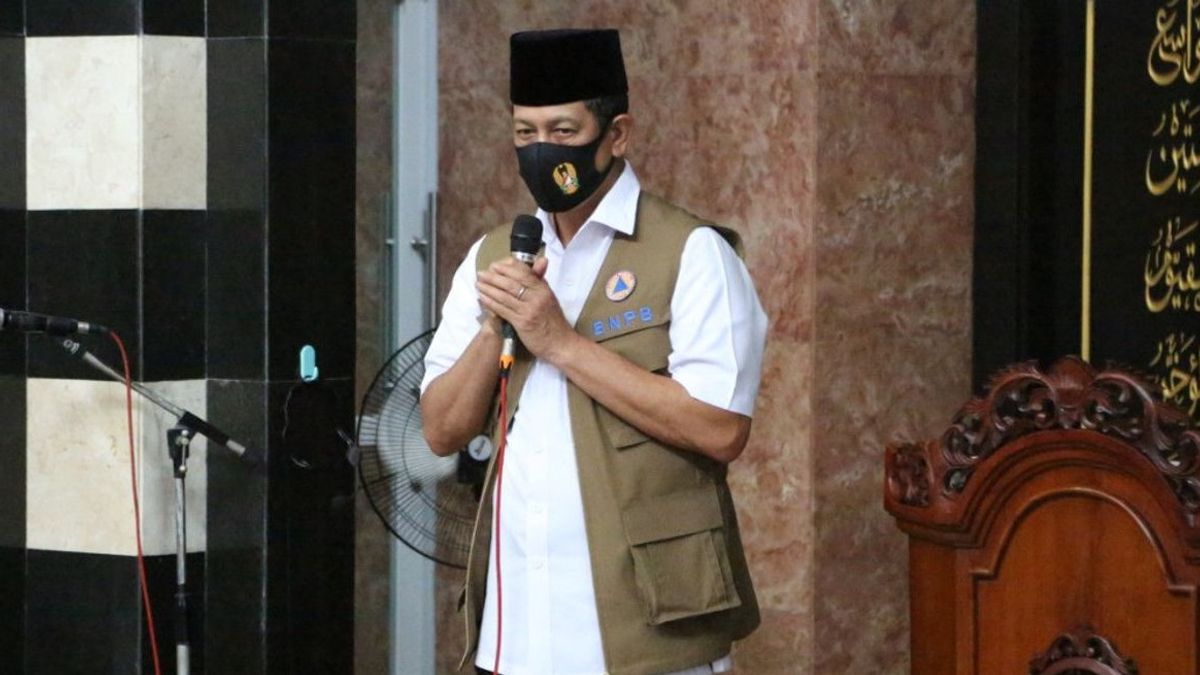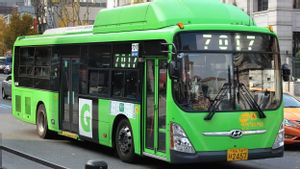JAKARTA - Chairman of the Task Force for Handling COVID-19 Doni Monardo emphasized the attention of the central government in monitoring the development of the spread of COVID-19 in Indonesia. Doni reminded regional heads to be able to control gas and brakes as directed by President Joko Widodo (Jokowi).
According to Doni, if an area has entered the red zone for the spread of COVID-19, the regional head will reactively brake and try to return the area to a safer zone. After entering the safe zone, the regional head can then step on the gas again and save the economy.
"In the red zone, the brakes will be pressed. When the area has reduced the number of cases, the gas can be added in each region. We must always pay attention to developments," said Doni during a meeting with Commission VIII DPR RI, Thursday, September 3.
Not only must they be able to determine the time or place their gas or regional brakes in an effort to improve health and economy, regional heads must continue to monitor the development of the spread of COVID-19 to maintain the reduced availability of space in hospitals.
"Every regional leader must be careful so as not to cause public concern about the availability of hospitals," said Doni.
He gave an example, in DKI Jakarta, the COVID-19 Task Force has collaborated with the TNI Health Center which manages the Wisma Atlet Kemayoran Hospital to accept COVID-19 patients with mild to moderate conditions to reduce the burden on referral hospitals.
According to him, Wisma Atlet Kemayoran Hospital is also a place of isolation for residents of Jakarta who have contracted the virus. Because, independent isolation at home is considered not very effective.
Doni confirmed that his party is trying to maximize data integration so that it can be used by regional heads. He encouraged the local government to work hard in order to change the status of the distribution zone from high or medium to lower.
Moreover, in the last few days the COVID-19 red zone has increased from 32 regions to 65 regions. The yellow and green zones have decreased.
"It takes hard work from all components of society in all regions whose status changes to medium and high risk to be able to work hard by increasing cooperation and involving existing instruments up to RT RW," he said.
It is known, the Ministry of Health (Kemenkes) released the latest additional positive cases of COVID-19 today. A total of 37,597 specimens were examined, as a result, there were 3,622 new positive cases of COVID-19.
The number of new cases today reached a new record. This figure follows the high number of specimens examined.
"The total accumulation of positive cases since COVID-19 was discovered in Indonesia has reached 184,268 people," he was quoted as saying from data from the Ministry of Health, Thursday, September 3.
Today, there are 2,084 cases recovered, so that a total of 132,055 people recovered. Then, the positive confirmed cases who died increased by 134 people and a total of 7,750 people.
The province with the most new cases is in DKI Jakarta with 1,359 new cases and a total of 43,400 cases. DKI Jakarta is also the province with the most accumulated cases in Indonesia.
Furthermore, East Java has 377 new cases with a total of 34,655 cases. Central Java with 242 new cases and a total of 14,670 cases. West Java with 238 new cases and a total of 11,719 cases. Meanwhile, Bali has 174 new cases and a total of 5,710 cases.
The English, Chinese, Japanese, Arabic, and French versions are automatically generated by the AI. So there may still be inaccuracies in translating, please always see Indonesian as our main language. (system supported by DigitalSiber.id)













